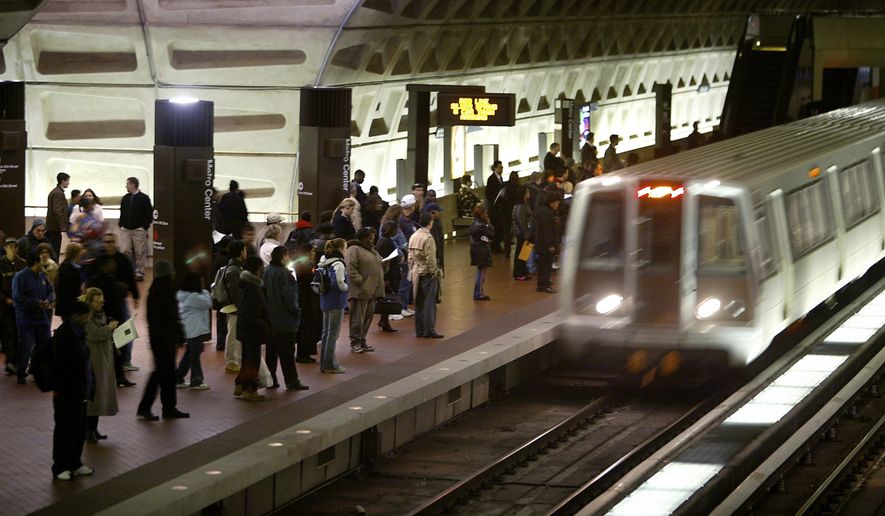The Metro board on Thursday overwhelmingly approved allowing the transit agency to charge higher fares during major events, but postponed a discussion on restoring late-night service.
Metro now has the authority to charge “peak fares” during special events when large crowds can tax the subway. Transit officials can choose which events — such as Independence Day or marches on the Mall — would be eligible for peak fares.
Board member Michael Goldman registered the only vote against the proposal, calling it a “backdoor fare increase” that discourages ridership.
“I don’t dismiss lightly what he said,” Metro Chairman Jack Evans told reporters after the vote. “But these are hard calls. Sometimes you have to make hard calls.”
“Metro needs to recover as much of its cost as possible,” Metro Chief Financial Officer Dennis Anosike said during a finance committee meeting earlier Thursday.
A transit agency spokesperson said Metro will not charge peak fares during its late-night service for New Year’s Eve, when trails will run until 2 a.m.
The board also discussed an idea from Mr. Evans and board member Corbett Price to restore Metro’s late-night service, with 3 a.m. closing times on Friday and Saturdays and midnight closings on other nights. However, members tabled discussion on the topic until January.
Laura Mason, Metro’s acting assistant general manager of rail services, said the agency’s systemwide preventive repair efforts are underway and those late-night hours are crucial for track work. She told the board:
⦁ Track incidents are down 86 percent, but the agency is not on track to meet its goal of reducing track fires by 50 percent since fiscal 2016.
⦁ Metro has cleaned 37 percent of the subway’s track beds — a key way to prevent fires.
⦁ The agency has checked the insulation of 30 percent of the system’s electrical cables but may need another three years to check them all.
“So you’re saying if we were to reduce the amount of track [maintenance] hours, we could expect those trends to go in the opposite direction?” asked board member Clarence Crawford.
“Correct,” Ms. Mason said.
Currently, Metrorail runs 5 a.m. to 11:30 p.m. Mondays through Thursdays, 5 a.m. to 1 a.m. Fridays and Saturdays, and 8 a.m. to 11 p.m. Sundays.
Board member David Horner suggested that Metro “devise a temporary solution perhaps in partnership with ride hailing companies or the like.” Metro General Manager Paul Wiedefeld supported the suggestion, but Mr. Evans criticized it as being “too expensive” for riders.
The Metrorail Safety Commission (MSC) urged Metro Wednesday in a letter to preserve late-night hours for track work, “thereby reducing the risk of fire and smoke events.”
But 65 officials from Montgomery and Prince George’s counties wrote a letter urging Mr. Wiedefeld to bring back the late trains: “Our residents and businesses have now made sacrifices for two years, in order to provide ample time for track maintenance. It is now time to try and win back riders with a restoration of service hours, and hopefully a reduction of headways.”
“I think there’s light at the end of the tunnel,” Mr. Wiedefeld said of Metro’s repair efforts and ability to restore late-night service. “But we’re not there yet.”
• Julia Airey can be reached at jairey@washingtontimes.com.




Please read our comment policy before commenting.